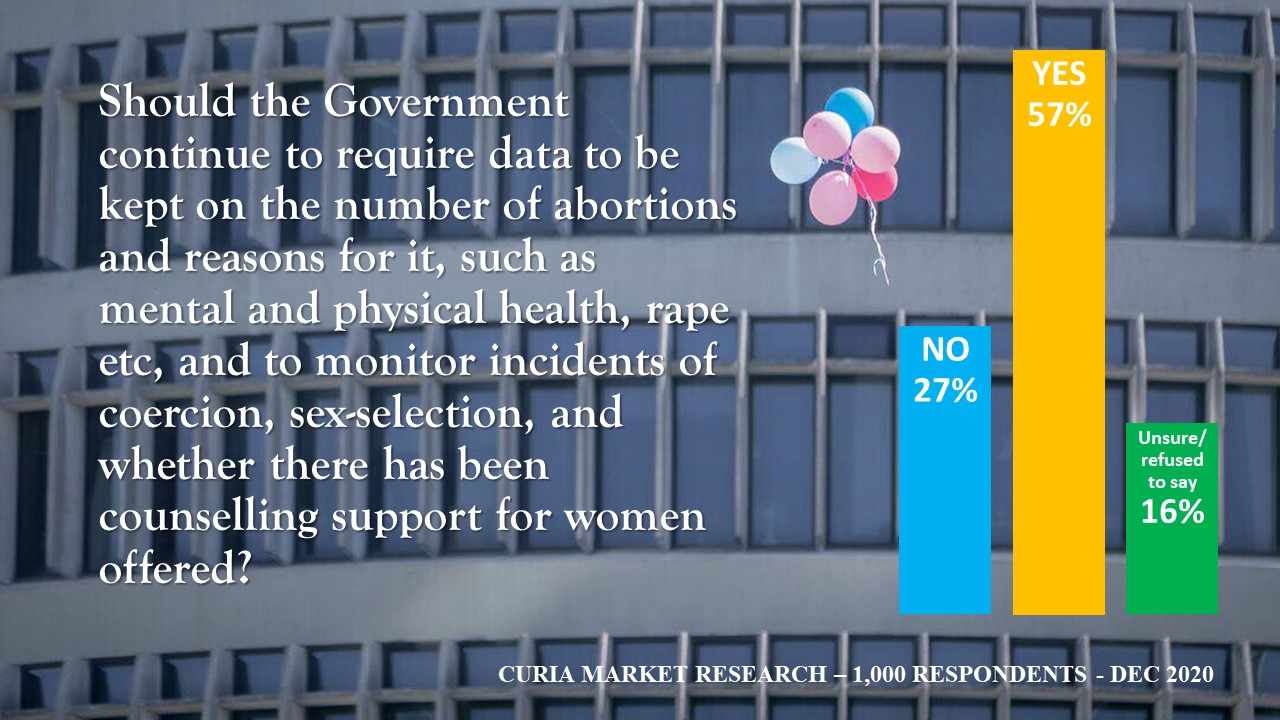Majority Of Kiwis Want Continued Monitoring Of Abortions
Commentary.
A nationwide poll has found majority support for the government to continue to closely monitor abortions in New Zealand and the reasons for it, despite the Ministry of Health recently suggesting that there is not a use for collecting much of this information.
 In the poll of 1,000 New Zealanders surveyed last month by Curia Market Research, respondents were asked “Should the Government continue to require data to be kept on the number of abortions and reasons for it, such as mental and physical health, rape etc and to monitor incidents of coercion, sex-selection, and whether there has been counselling support for women offered?”
In the poll of 1,000 New Zealanders surveyed last month by Curia Market Research, respondents were asked “Should the Government continue to require data to be kept on the number of abortions and reasons for it, such as mental and physical health, rape etc and to monitor incidents of coercion, sex-selection, and whether there has been counselling support for women offered?”
A majority of 57% want the Government to continue to require thorough data to be kept on abortions, with 27% disagreeing, and 16% unsure or refusing to say.
There was no significance difference in support based on gender, age, area, or socio-economic factors. Labour and National supporters were both strongly supportive of continued monitoring.
This backs up previous polling in 2018 which found that 90% oppose sex selective abortions, 76% support doctors being required to verify a woman seeking an abortion is not under any coercion from a 3rd party, and 56% of women think the time limit should be less than 20 weeks.
The monitoring of abortions by the Abortion Supervisory Committee will no longer be happening under the new liberalised abortion regime, and there is no legislative requirement in the Abortion Legislation Act 2020 for the Director General of Health to provide the Minister of Health with an annual report on abortion. The Regulatory Assurance team at the Ministry of Health are currently reviewing what abortion statistics they will collect, but they have indicated in correspondence that they will be taking what we believe to be a weak approach to community concerns.
Disturbingly. the Ministry say that they “do not have a proposed use” for information around late term abortions despite significant concerns being raised during the recent debate by both the public and politicians to monitor this issue. Regarding the reasons for abortions, the Ministry said they “do not require this information to be collected”, and that they “would not have a use” for information around a diagnosis of fetal abnormality.
Also of concern is that they “do not believe it is likely that collecting information about sexual violation via the abortion notification forms would improve health outcomes”.
They say they have no intention to monitor the parental notification issue or whether requests for abortion are declined, except for where conscientious objection is a factor. On the positive side, they are interested in the prevalence of home-based abortions and also the provision of counselling.
Statistics around late-term abortions, abortions for foetal abnormality, sexual violation and coercion, home-based abortions, provision of counselling, requests for abortions being declined, numbers of teenagers having abortions where the parents are not notified – these are all issues that the community is concerned about and entitled to have publicly available statistical information on.
And it appears that kiwis across the political divide believe this statistical information should continue to be recorded in detail.
The nationwide poll was carried out during December and has a margin of error of +/- 3.1%.






